4 Reasons Why You Should Record Videos During Deposition
April 2023
·
3 min read
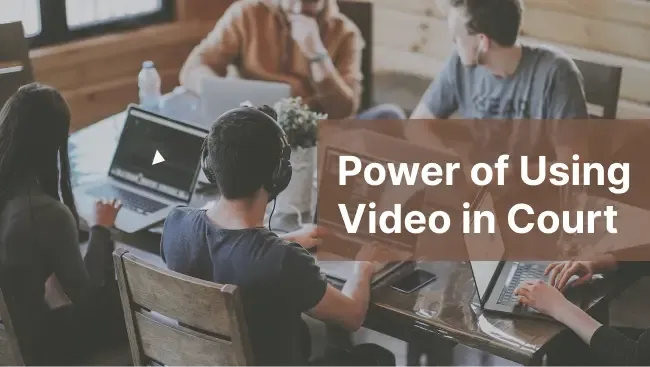
We've all watched and enjoyed movies where the protagonist's lawyer gets the criminal to say something on record - either in court or on video that proves they're guilty.
Criminal justice relies on concrete evidence. When used in court, even a 5-second powerful video clip can sway jurors because video can capture not just facts, but emotions much better than text.
The use of video in court was limited by processes and policies. Courts demanded people show up at court physically.
Lawyers and paralegals depended on dedicated video editors to chop down hours of deposition video into short punchy videos that do not waste the court's time.
In this article, we will show how things have changed on both fronts. Covid-19 forced courts to embrace technology and video conferencing.
Now, new video editing technologies are allowing lawyers to edit video themselves, bringing the full power of video to the criminal justice system.
Why Do You Need to Record Video During Your Deposition?
The power of video lies in its ability to capture moments that cannot be conveyed through written statements or verbal accounts.
From the introduction of video conferencing to the use of forensic video analysis, video technology has made it easier for lawyers and judges to assess evidence, and make informed decisions.
Using video footage as a piece of evidence or to back up the lawyer’s statement brings trials to life, allowing jurors to see and hear firsthand accounts of events, and witness the emotions and expressions of the parties involved.
Here are a few of the advantages of using video in court:
1. Non-verbal Communication:
Imagine there's a court case going on and a bunch of jurors are listening to the lawyers. One of the lawyers hands them a bunch of documents to read and another one shows them a video. Which one would be more impactful?
VIDEO, of course. Let me tell you why. Videos capture non-verbal communication, which is as important as verbal communication in conveying a person's emotions, thoughts, and intentions.
Video footage displayed in the courtroom determines the credibility of a witness or deponent providing them with the added benefit of visual evidence.
Videos help jurors to determine whether the defendant had the requisite intent to commit the crime, whether the victim was acting in self-defense, or whether there were other factors at play that influenced the defendant's behavior.
2. Increased Engagement:
Videos make complex information more accessible and easier to understand, increasing jurors' engagement.
Videos provide jurors with a clearer and more accurate understanding of the events. It helps with the engagement allowing them to be attentive and make a more informed decision about the case.
It also increases participant engagement as people are more likely to be attentive and participate actively when they know they are being videotaped.
3. Improved Accuracy:
Compared with audio recordings and transcriptions, videos provide more accuracy as they allow for playback and testimony review, reducing the risk of misinterpretation and errors.
4. Emotional Impact:
Videos have an emotional impact. Watching a witness's testimony can be more compelling and convincing than reading a transcript.
For example, if the video shows the defendant being mistreated or unfairly accused, jurors may feel sympathy or empathy for the defendant.
This emotional response can lead jurors to question the credibility of the prosecution's case and to consider alternative explanations for the events depicted in the video.
Meet Reduct
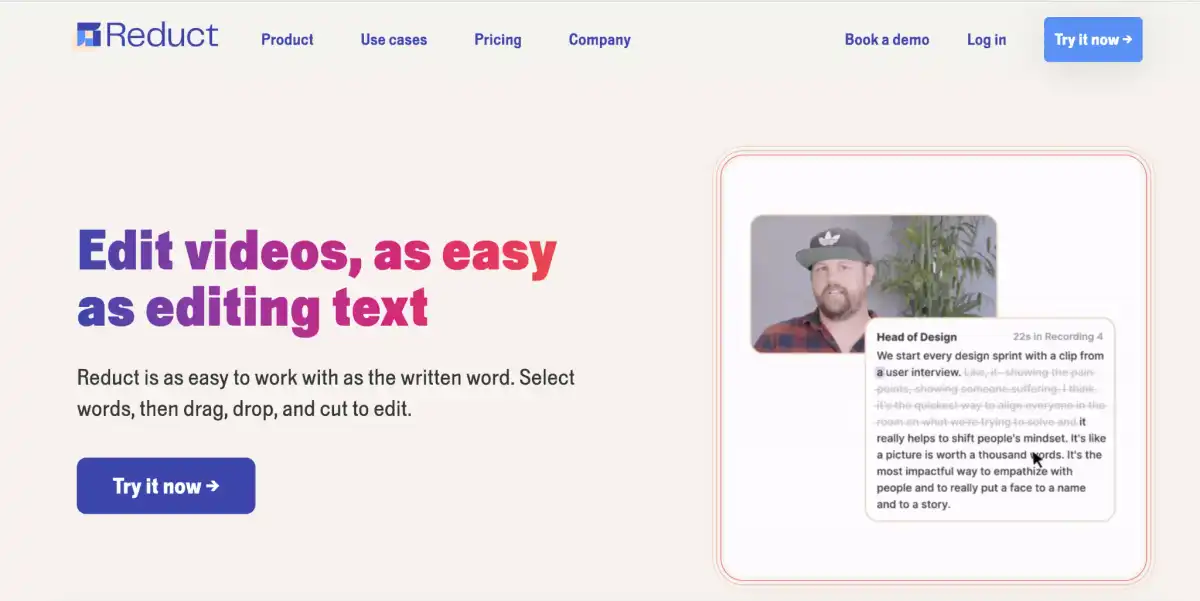
Reduct is a collaborative transcript-based video platform where you can review, search, highlight, and edit video, as easily as text.
With Reduct's Features and Integration, You Can Easily Extract Insights From Your Recorded Deposition Audio/video
How do lawyers benefit from Reduct?
Reduct The legal team can lawyers generate short video testimonials from hours of client interviews.
With the use of AI to analyze interview transcripts and automatically identify key moments and soundbites, paralegals can edit long interview videos into compelling testimonial videos.
Secure & compliant
Reduct places great emphasis on security and guarantees secure HIPAA compliance for those seeking a high degree of protection during deposition.
Reduct is also SOC 2 Type II certified and GDPR compliant.
With advanced features like highlighting and tagging, the legal team can highlight any key points in the deposition, and extract insights. Paralegals can pull out key moments from deposition videos to display in court.
Learn how you can edit your interviews and webinars with Reduct without having any editing experience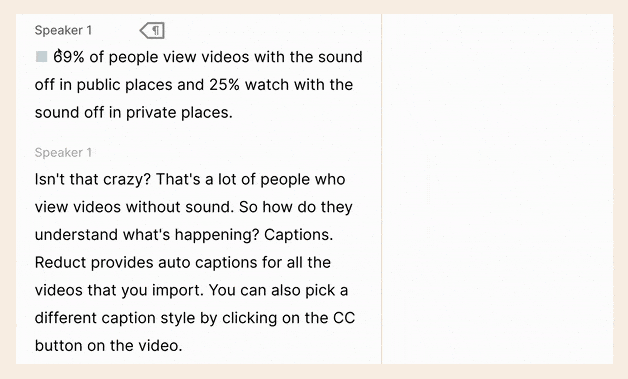
Reduct is capable of working with large volumes of interview depositions. The legal team can also use Reduct to create clips or excerpts of the deposition for use in opening statements, cross-examination, or closing arguments.
They can simply splice the video to create a more streamlined and focused presentation.
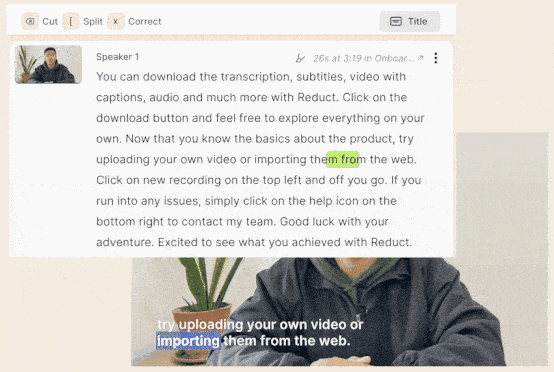
Reduct can help your legal team in managing e-discovery, organizing, and tagging video evidence. We have a track record of helping multiple legal teams with digital evidence, depositions, and discovery.
You can easily search and find key moments from all your recorded footage with the help of Reduct’s fuzzy search feature.
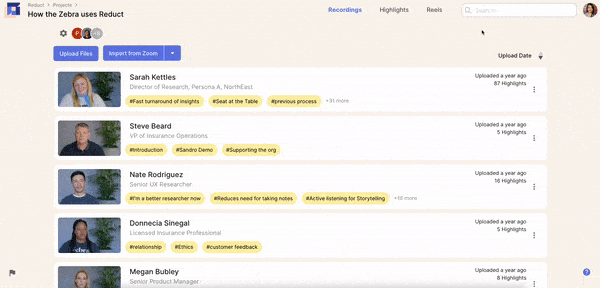
With Reduct, deposition footage, and digital evidence are readily accessible, putting them at your fingertips. Try Reduct and collaborate seamlessly with your legal team.


